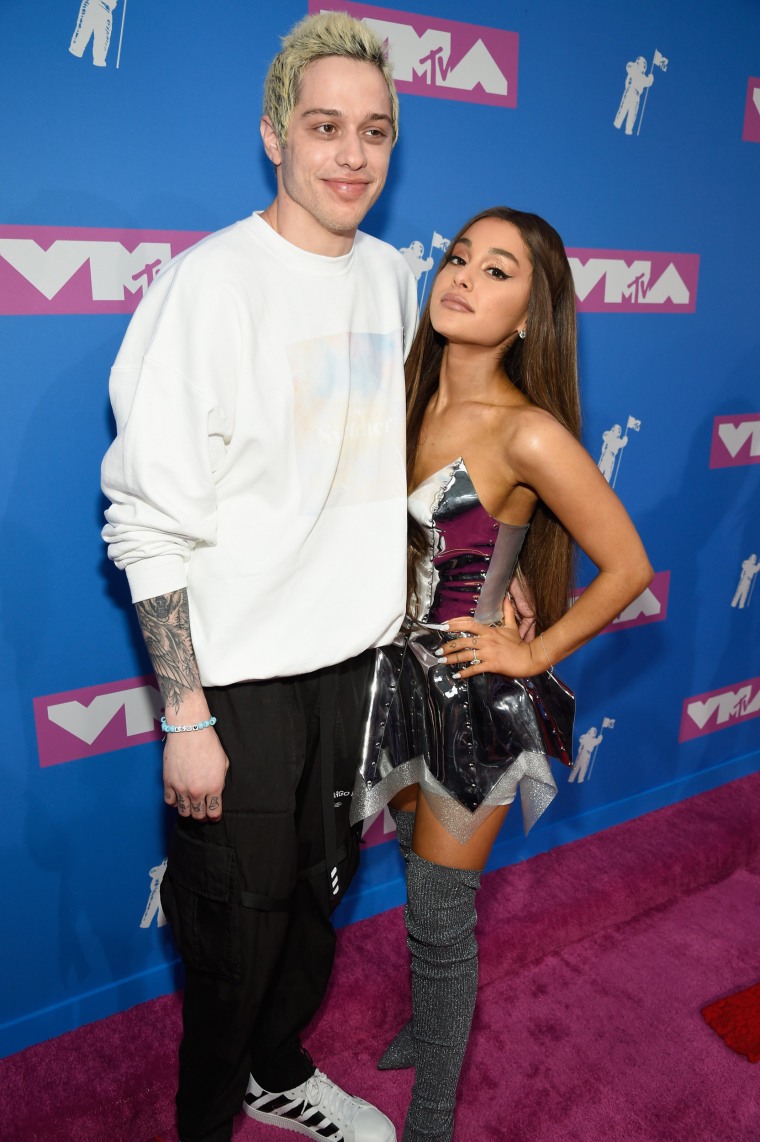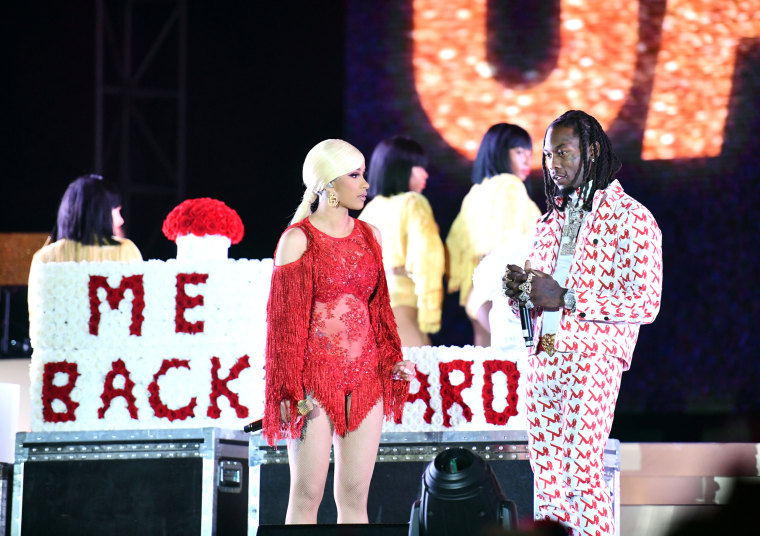Beyonce has a “Beyhive.” Ariana Grande a loyal legion of “Arianators.” And Cardi B can claim the “Bardi Gang.”
However catchy the name of celebrity fandoms, obsessive, online fan bases of some A-listers can have a dark side. That was on display recently when "Saturday Night Live" star Pete Davidson called out the online bullying he received by followers of his ex, Grande.
Before the rise of social media, fans had limited opportunity to interact outside of live events, experts say. So their reactions to events concerning their idols were slower and generally less visible.
That's all changed.
"Twitter and Instagram have given fans unfettered access into artist’s lives, and artists are able to harness those platforms to directly engage with their fans, tease and promote projects and confirm or deny rumors," said Gerrick Kennedy, author and music reporter for the Los Angeles Times.
But that level of access can lead fans to feel more invested in an artist, with some superfans assuming the role of guardians of their favorite celebrities as they react in real time to any perceived slights against their idol.
"Social media has become a breeding ground for bullying amongst fan bases who have created rivalries based on sales and chart placements," Kennedy said.
When Cardi B’s estranged husband Offset crashed her concert last week in an attempt to win her back, the stunt led many of her fans to take him to task on Twitter. Some in the “Bardi Gang” also slammed Cardi’s publicist who helped arrange the surprise.
"I’m so sorry but this is just harassment now," wrote one Twitter user about Offset. "Coming to ambush Cardi B whilst she’s working is not 'cute' nor should it be applauded."
Another Cardi fan said Offset's appearance during her set was "not even an apology," but rather "an abusive manipulation tactic."
The following day, Cardi, attempted to rein in her supporters.
In an Instagram video, the rapper thanked her 37.5 million followers for their support while telling them not to bash her publicist or her ex.
"Violating my baby father is not gonna make me feel better 'cause at the end of the day, that's still family," she said.
Cardi, 26, whose real name is Belcalis Almanzar, also called out online bullying in general, mentioning Davidson, a recent target of another celebrity's fans.
"I know how painful it is when you have millions of people bashing you every single day. I don't like that and it doesn't make me feel any better," she said in the video that has since been deleted.
Grande took a similar approach earlier this month in response to “Arianators” who attacked Davidson after she and the comedian called off their short-lived engagement.
The singer asked her fans to please be “gentler with others, even on the internet.”

Davidson has suggested that the bullying online — and in public — began when he and Grande started dating, then intensified when they split.
"I'm trying to understand how when something happens to a guy the whole entire world just trashes him without any facts or frame of reference," he said in a December post on his since-deleted Instagram account.
One expert said celebrities should leverage their influence to discourage online bullying, as Cardi and Grande did.
“The celebrity often does have the loudest voice in their fandom, and their wishes and requests will carry a lot of weight with the majority of their fans,” said Dale Peeples, an associate professor at the Medical College of Georgia who researches social-media bullying.
But sometimes a celebrity's posts fuel negative treatment online.
Wanna Thompson, a freelance writer and hip-hop critic in Toronto, said she has received daily threats, including hateful texts and messages from anonymous Twitter and Instagram users, since this past summer, when she shared an opinion about "how dope it would be" if Nicki Minaj would put out content on relationships, hardships and other "mature" issues.
Some in Minaj's "Barbz," as her fan base calls itself, brought Thompson's tweet to the rapper's attention and went on the attack — telling the critic to kill herself and even making threats against her then-4-year-old daughter.
The response shocked Thompson, who had been a Minaj fan. She said artists' followers "feel an intense closeness and entitlement" to them and "will do any and everything to defend their 'fav.'"
"Most of these individuals are chasing a sense of belonging," Thompson said.
Minaj, who has 96.5 million followers on Instagram and another 20.5 million on Twitter, also weighed in. The rapper sent Thompson two direct messages on Twitter, calling her "ugly" and using a string of expletives. Thompson said she lost her internship at an entertainment blog after the incident.
Minaj did not return requests for comment from NBC News.
Music critic Kennedy said he has been the victim of online death threats, racial slurs, hate speech — and, in a few cases, threats against his family — all in response to his writings about artists.
But he expressed some sympathy for fans who take it upon themselves to defend powerful superstars.
"What’s sad is they are going through great lengths for people who essentially don’t even know they exist," Kennedy said.

